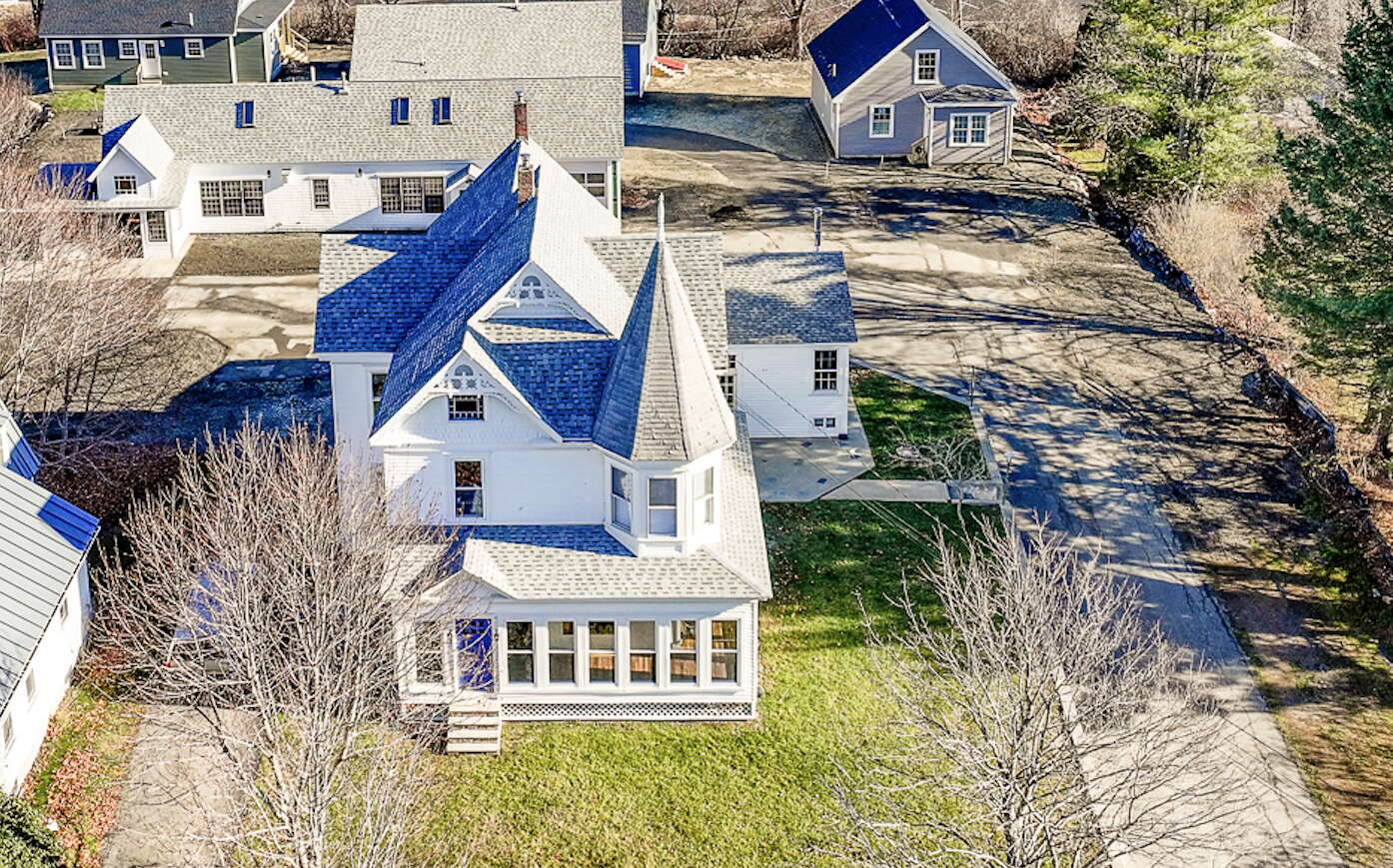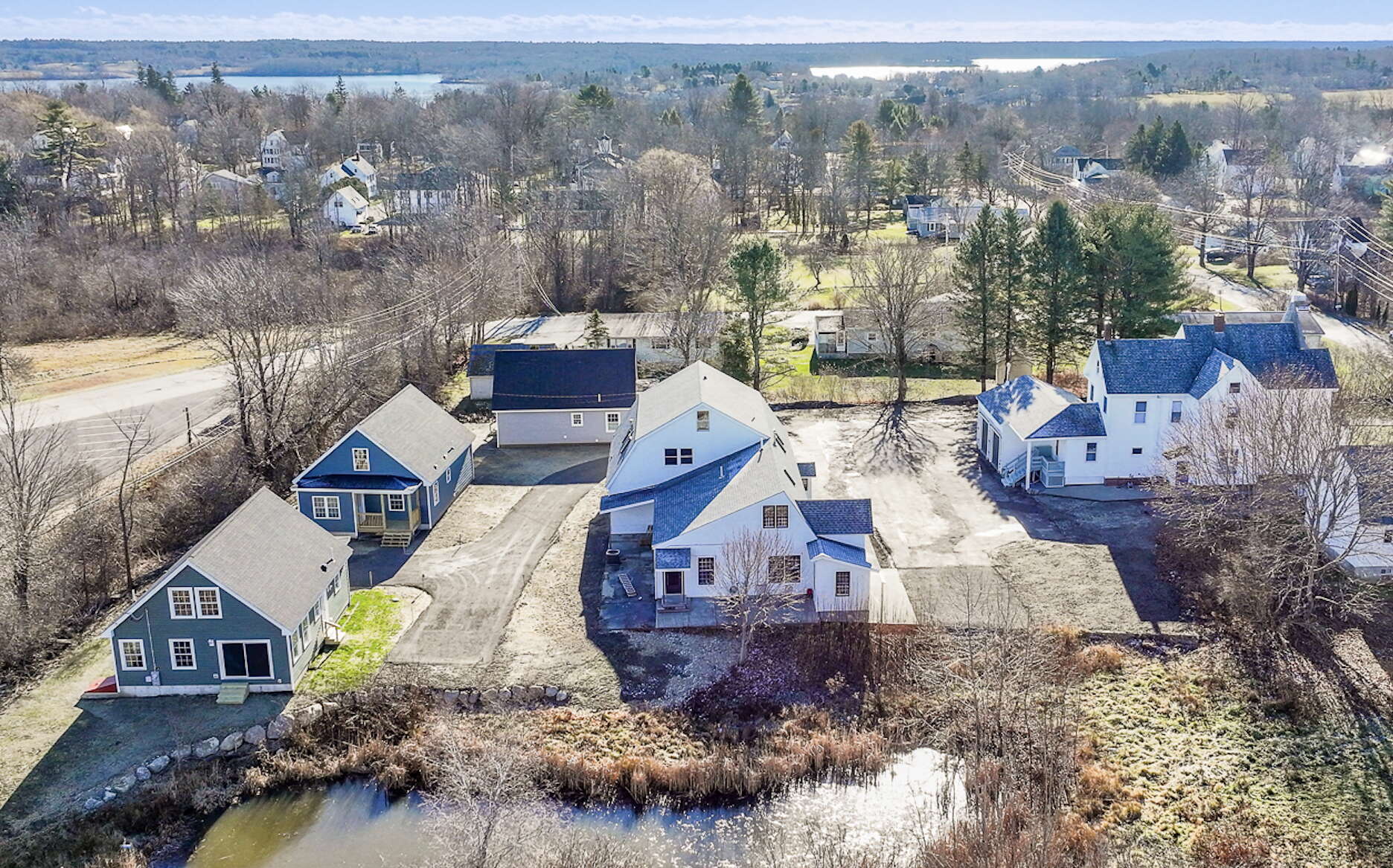
Processing Your Payment
Please do not leave this page until complete. This can take a few moments.
Thomaston’s first condo development nears completion
 Photo / Courtesy Maine Working Homes
Merritt Carey, project manager and co-founder of Maine Working Homes, stands in front of a KBS-built cottage.
Photo / Courtesy Maine Working Homes
Merritt Carey, project manager and co-founder of Maine Working Homes, stands in front of a KBS-built cottage.
A seven-unit workforce housing condominium development at 31-33 Booker St. in Thomaston is wrapping up, with five units sold, one on the market and one nearing completion.
The Maine Working Homes development, on 1.76 acres, includes a mix of stand-alone cottages and multi-unit buildings.
“We chose to create condominiums because we could maximize the density of the 1.76 acre property,” said Merritt Carey, project manager and co-founder of Maine Working Homes. “We knew it was a novel approach for a rural community, but our goal was to demonstrate condominiums as a viable solution in rural communities.”
The project is Thomaston’s first condominium development.
“This development has been a very collaborative one between the town and Maine Working Homes, and we look forward to more housing options for our community members,” said Kara George, Thomaston’s town manager.
‘Attainable’ homeownership
Maine Working Homes was established by Carey and Andrew Curtis in 2021 as a limited liability corporation focused on solving housing challenges for Maine.
Carey, who lives in Yarmouth, is a lawyer-turned-consultant with diverse community-relations experience. She has worked on working waterfront, fisheries and rural economic development issues.

Curtis lives in Connecticut but has family ties in Maine. He has spent 20 years working in finance in New York City, first at investment banks Merrill Lynch & Co. and Lazard Frères and later at several investment managers.
The two were college classmates. They joined forces in 2021 to launch Maine Working Homes. The small development company’s goal is to create home ownership opportunities for Maine residents who have become increasingly priced out of the state’s residential real estate market and who are no longer able to buy homes in the communities in which they work.
Strategies include the conversion of existing multi-family properties to condominiums that can be independently owned; new construction and workforce housing development; and the purchase and renovation of distressed single-family homes.
South Thomaston
Their first project was the conversion of a multifamily rental property, at 3 Westbrook St. in South Thomaston, into a pair of two-bedroom, two-bath, 900-square-foot condos.
Maine Working Homes bought the property in November 2021, completed renovations and sold the units to a local business owner and a nurse. The sale price for both units was under $200,000.
Another project involved the renovation and sale of a duplex at 34-36 Willow St. in downtown Rockland.
Thomaston
31-33 Booker St. was a distressed property purchased at auction in 2023. It consisted of a three-story Victorian home and a large outbuilding that was formerly a rope factory.

Maine Working Homes completed the conversion of the Victorian into two 1,400-square-foot condominiums — a first-floor unit with two bedrooms and two bathrooms and a second-floor 2-bedroom, 1-bath unit. The property needed significant infrastructure and cosmetic upgrades, but the project maintained period details of the structure. The two units sold to a single buyer.
In the outbuilding, the project installed two side-by-side units. One has sold and one is under construction.
The project brought in three modular stand-alone homes consisting of one 3-bedroom house and two single-story, two-bedroom houses. The three units were manufactured by KBS Builders in South Paris. Two were pre-sold to local residents, each looking to downsize. The third unit is finished and is on the market.
Of the seven units, the first sold for $279,000, significantly lower than the median sale price in Knox County of $440,000, according to the Maine Association of Realtors.
Another unit sold for $210,000. The list price for the last modular unit on the market is $349,000.
The project was privately funded by Maine Working Homes founders and a private investor interested in workforce housing in Knox County.
‘Good options’
Maine Working Homes is a for-profit business, but aims to keep project budgets as low as possible in order to provide “reasonably priced housing” for buyers, while also making a return on their capital and work.
Strategies to keep construction costs down include the use of modular construction, which provides uniformity and greater certainty around construction timelines, Carey said. The company provides vertically integrated services in-house, with Carey acting as the general contractor, dealer-developer for modular builds and Realtor.

Carey said a goal was to figure out whether condos can provide solutions to the housing crisis for rural Maine.
The findings?
“They 100% can,” she said. “They offer a lot of really good options.”
Challenges
But there are challenges.
“Novel concepts, such as building condominiums in a rural areas, often come with challenges,” she said. “In this case, in addition to standard workforce and high cost of building challenges, which goes along with any building project, there are the challenges of convincing buyers not to be afraid of condominiums — it’s not what buyers typically look for in rural areas — and outdated financing regulations.”
In general, she said, banking regulations make it difficult for potential condo buyers to secure a mortgage.
However, she continued, Androscoggin Bank and First National came through.
Condominiums represent a form of common ownership in which an association is responsible for the upkeep of and repairs to the property, said Nicole Haggerty, Androscoggin Bank’s senior vice president and director of marketing and communications.
“New condominium associations, whether new construction or created by converting an existing structure, do not have an established track record under that common ownership structure, which adds an additional layer of complexity to financing them,” Haggerty said in a written communication.
Historical issues with certain condominiums in the past “have influenced current secondary market underwriting criteria today,” she continued.
Androscoggin Bank was able to address the situation for the Thomaston project.
“Condominium associations that don’t fit into the secondary market criteria are ineligible for sale into the secondary market,” Haggerty said. “In those cases, however, a bank may still choose to make the loan and hold it on its own balance sheet. These are the types of scenario where Androscoggin Bank would be able to consider financing.”
Said Carey, “Despite challenges, at the end of the day we’ve created seven dwelling units, all within walking distance to Oceanside Middle School and Main Street in Thomaston, where once there were distressed, virtually uninhabitable structures, and that’s a win for the community.”














0 Comments